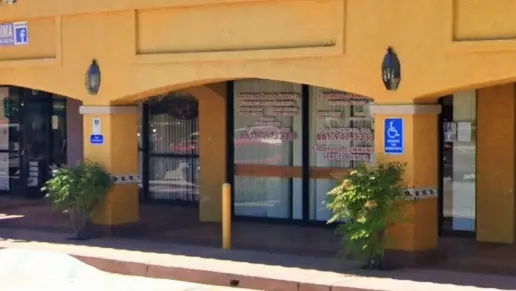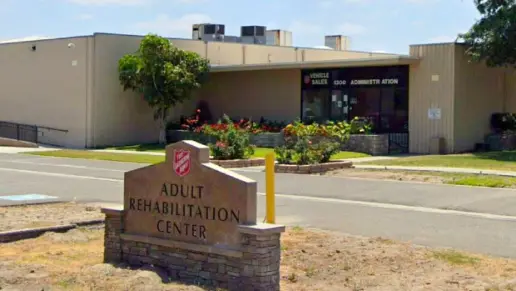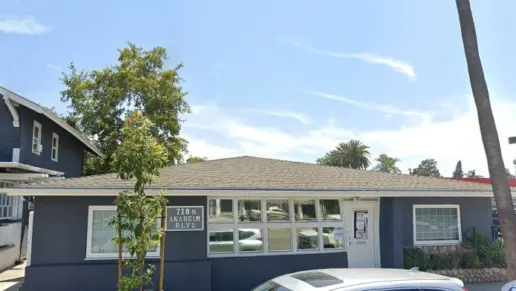About Reflections Recovery Center
Reflections Recovery Center -- Fountain Valley is a private substance abuse recovery facility in Fountain Valley, California, near the shores of the Santa Ana River. They provide clients with comprehensive addiction treatment while promoting peer support. They serve adult clients.
The Reflections Recovery Center approach to substance abuse recovery combines traditional therapeutic activities and methods with the 12-step model. In this way, they can combine clinical care with peer support. Services they offer include:
An intensive outpatient program (IOP) is a day program that meets for six hours a day. Treatment takes place in a highly structured environment for those with severe symptoms. IOP treatment can include group therapy, anger management, cognitive behavioral therapy (CBT), 12-step meetings, recreational and experiential therapy, addiction education, life and coping skills development, health and wellness education, and relapse prevention training.
The outpatient program is a less intensive version of IOP, with clients meeting less often and for shorter sessions. It’s ideal for those with busy schedules and offers more flexibility than IOP. It utilizes the same forms of treatment as IOP.
This facility operates sober living homes for clients enrolled in treatment. These are peer-shared living facilities overseen by staff to ensure clients remain sober and follow house rules. These houses are ideal for clients who aren’t ready to return home and want a safe space to practice recovery skills.
Reflections Recovery Center accepts many forms of major insurance, including Blue Cross Blue Shield, Cigna, United Healthcare, Humana One, Harvard Pilgrim Health Care, and Aetna. Clients should always confirm their coverage before enrolling in a program, as in-network and out-of-network benefits may vary.
Accepted Insurance
Other Forms of Payment
Private insurance refers to any kind of healthcare coverage that isn't from the state or federal government. This includes individual and family plans offered by an employer or purchased from the Insurance Marketplace. Every plan will have different requirements and out of pocket costs so be sure to get the full details before you start treatment.
Self-pay involves paying for treatment out of your own pocket. You can use savings or credit, get a personal loan, or receive help from family and friends to fund your treatment. If you don't have insurance or your insurance plan doesn't cover a specific program, self-pay can help ensure you still get the care you need.
Financial aid can take many forms. Centers may have grants or scholarships available to clients who meet eligibility requirements. Programs that receive SAMHSA grants may have financial aid available for those who need treatment as well. Grants and scholarships can help you pai for treatment without having to repay.
Addiction Treatments
Levels of Care
Treatments
The goal of treatment for alcoholism is abstinence. Those with poor social support, poor motivation, or psychiatric disorders tend to relapse within a few years of treatment. For these people, success is measured by longer periods of abstinence, reduced use of alcohol, better health, and improved social functioning. Recovery and Maintenance are usually based on 12 step programs and AA meetings.
Drug rehab in California teaches participants constructive ways to stay clean and sober. Treatment revolves around helping individuals stop using the substance they are addicted to and learn healthy habits to avoid relapse.
Many of those suffering from addiction also suffer from mental or emotional illnesses like schizophrenia, bipolar disorder, depression, or anxiety disorders. Rehab and other substance abuse facilities treating those with a dual diagnosis or co-occurring disorder administer psychiatric treatment to address the person's mental health issue in addition to drug and alcohol rehabilitation.
Opioid rehabs specialize in supporting those recovering from opioid addiction. They treat those suffering from addiction to illegal opioids like heroin, as well as prescription drugs like oxycodone. These centers typically combine both physical as well as mental and emotional support to help stop addiction. Physical support often includes medical detox and subsequent medical support (including medication), and mental support includes in-depth therapy to address the underlying causes of addiction.
Substance rehabs focus on helping individuals recover from substance abuse, including alcohol and drug addiction (both illegal and prescription drugs). They often include the opportunity to engage in both individual as well as group therapy.
Programs



Clinical Services
Group therapy is any therapeutic work that happens in a group (not one-on-one). There are a number of different group therapy modalities, including support groups, experiential therapy, psycho-education, and more. Group therapy involves treatment as well as processing interaction between group members.
Amenities
-
Private Rooms
Accreditations

State Licenses are permits issued by government agencies that allow rehab organizations to conduct business legally within a certain geographical area. Typically, the kind of program a rehab facility offers, along with its physical location, determines which licenses are required to operate legally.
State License: California
Contact Information
17165 Newhope street
Suite M
Fountain Valley, CA 92708







